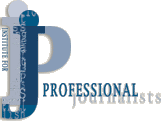IPJ Promotes Press Freedom at LU Seminar
![[photo]](maf-nahar.jpg)
IPJ director Magda Abu-Fadil speaks on press freedom at Lebanese University seminar.
![[photo]](imadbachir.jpg)
LU Faculty of Information & Documentation Director Imad Bachir hosted Abu-Fadil at MEPI-funded event.
IPJ director Magda Abu-Fadil promoted press freedom and called for changes in Lebanese media laws that were outdated and unfair (download the speech) at a seminar organized by the Lebanese University with funding from the Middle East Partnership Initiative and sponsorhip of An-Nahar daily newspaper and the Young Men’s Christian Association.
“Media freedom is based on Article 19 of the Universal Declaration of Human Rights and is not a luxury, it’s a must,” Abu-Fadil told a capacity audience of students, professors and journalists at LU’s Faculty of Information & Documentation in Beirut.
She raised questions about what freedom is, who should determine that freedom, what may cause liability to a news organization if it exceeded agreed-upon laws or norms and whether external forces had a right to dictate their interpretation of freedom on local organizations.
“Human Rights Watch has repeatedly raised the issue with the Lebanese government, charging it with violations of press freedom, under the pretext of protecting national security,” she said. “So why does Lebanon sign internationally recognized treaties if it does not plan to implement them?”
Abu-Fadil reviewed the state of print and broadcast media laws in Lebanon, saying they were archaic and needed serious revision.
“On the one hand, some clauses in the law allow for democracy and diversity in views, on the other, there are major constraints and there have been clampdowns on media that didn’t toe the official line, which is contradictory and confusing.”
The matter of objectivity was also raised, with Abu-Fadil asking how it is assessed and who determines it.
Lebanese media must be licensed and disseminiation of political news require special dispensation in print and broadcast. The issuing of licenses has been the purview of regulatory bodies long associated with key political forces in the country.
“Media experts have long complained that there is no independent regulatory agency in Lebanon, which hampers fairness and leads to the biased distribution of licenses,” she explained.
Turning to new media, Abu-Fadil said the powers that be had obviously not kept up with the times and failed to realize the importance of the Internet. Another issue ignored by journalists and regulators alike was media ethics, which she said were in short supply.
“We must couple press freedom with responsible and ethical journalism if we’re to be taken seriously,” she insisted.
Seminar participants peppered Abu-Fadil with questions about charges of double standards in Western media that they felt were unfair to Arabs and Muslims. They asked whether it was ethical or an expression of freedom to insult people’s beliefs and deities in reports, editorials and cartoons. The Danish cartoon flap was hotly debated at the seminar.

